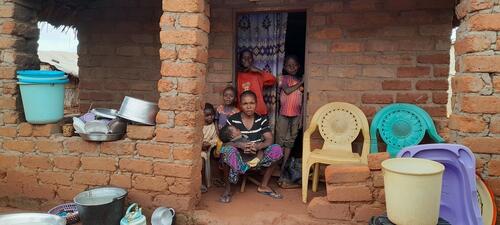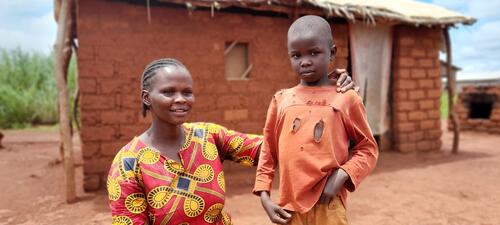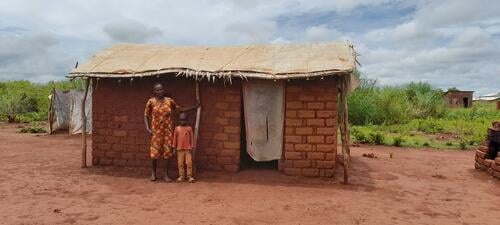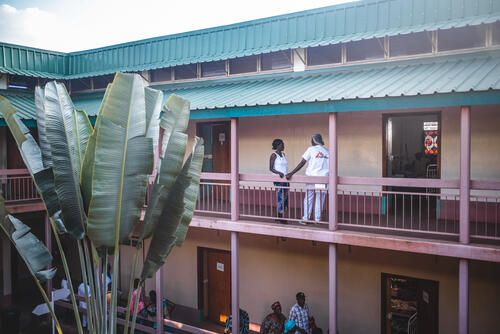Successive waves of violence in Central African Republic (CAR) have forced people to flee their homes, leaving everything behind. They continue to endure the adverse effects of years of armed conflict. In Bria, where the country’s largest internally displaced people’s camp is, many people struggle to return home and rebuild the lives they left behind after violence broke out in 2016.
Over one million Central Africans are either internally displaced or refugees. Insecurity, lack of money, and land disputes are some of the many obstacles they face to a safe and lasting return home. While the Central African armed forces, supported by their allied forces, have regained control of the main towns, regular clashes around remote villages make the living conditions precarious for local and displaced people alike.
Even now there are more than 36,000 people in PK3 camp, where displaced people live, situated three kilometres outside Bria.
Six years later, prospects are still limited
Almost everyone in PK3 has lost everything. People's homes and fields have been destroyed and their belongings looted. Going back home after so many years is challenging.

“I fled with my husband and our three children in 2016,” says Diane. “The other two were born in the camp. Looking after them is tough because life here is hard and my husband – he’s a motorcycle taxi driver – can’t make enough to make ends meet.”
“We can’t go back to Bria. Our home’s gone and we don’t have the money to start over,” she says.
The vast majority of people in the region work the land or in mines, which is often controlled by armed men and inaccessible. Having been displaced for years with few possibilities for obtaining regular and adequate income, families oftentimes cannot afford to re-build a home.
Needs remain high in Bria
People still endure extremely harsh living conditions in PK3, which has insufficient access to clean water, sanitation, food, education and medical care. Some also suffer from psychosomatic and post-traumatic stress disorders.
“The conflict, which has affected this region particularly badly, has left communities unable to afford even the most basic necessities and health services continue to be inadequate and hard to access,” explains Ange Francelin Ble, Médecins Sans Frontières’ (MSF’s) project coordinator in Bria.
MSF teams have been running a paediatric clinic in Bria since 2017, providing over 250,000 paediatric consultations to under 15-year-olds. We’re working with the Ministry of Health at the hospital in Bria, where serious cases are referred.
We have already given 29,967 consultations in the camp this year. More than 70 per cent have been for malaria – a disease our teams are particularly attentive to given that it is the leading cause of death in children under five.
A timid return
Since May 2022, a few families have been able to go back to their old neighbourhoods through a pilot scheme operated by UNHCR and its various partners.
“Our lives aren’t that different to what they were in the camp. But, we feel more comfortable and safer in our home,” says Chancela. “The children have a big space to play in and we can attend to their education. That wasn’t always the case in the camp because there was no privacy.”

“Some people are starting to leave the camps, but this is an area that has suffered years of chronic insecurity and population displacements. Living conditions in and around Bria are still challenging and unpredictable,” says Ricardo Fernandez Sanchez, MSF’s head of mission in CAR.
The situation in Bria is a sad reflection of what is happening throughout the country. Instability, tensions, and chronic violence continue in CAR, away from the media spotlight.






